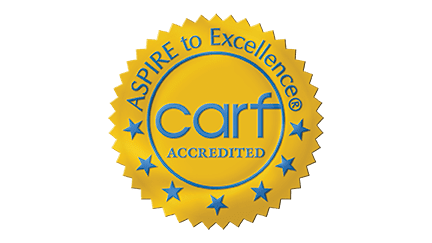Path of Honor: The Journey Back to Duty

Path of Honor: The Journey Back to Duty
Using Carl Jung’s archetypes in therapy not only aids in understanding clients beyond labels or diagnoses but also enriches the therapeutic process. Archetypes offer a framework to explore the intricate nuances of personality and behavior, enabling therapists to grasp clients’ motivations and conflicts while sidestepping the stigma often associated with traditional diagnoses.
Moreover, delving into the human need for belonging and community enhances therapeutic insights. Individuals naturally gravitate toward connections and identification with groups or symbols that mirror their values and identities. This phenomenon is evident in various facets of life, from unwavering loyalty to sports teams to passionate preferences for specific music genres or artists.
By recognizing these affiliations and attachments, therapists gain deeper insights into clients’ identity formation and self-concepts. For instance, a client’s strong affinity for a particular music genre may serve as a means of self-expression or a channel to connect with like-minded individuals.
Incorporating Jungian archetypes into therapy thus enables a more comprehensive understanding of clients’ experiences. Therapists facilitate a journey of self-discovery and empowerment by empowering clients to redefine their self-image beyond societal norms and expectations.
Phase 1: Trauma and Recovery Education with Introduction to Cognitive Processing Therapy (CPT)
Overview: During this initial phase, participants embark on a comprehensive exploration of addiction and trauma, laying the groundwork for their recovery journey.
Through an in-depth examination of the disease model of addiction, participants gain insight into the cyclical nature of substance abuse and its profound impact on mental and emotional well-being. Concurrently, the principles of Cognitive Processing Therapy (CPT) are introduced, providing participants with essential tools for processing and reframing traumatic experiences. Central to this phase is the recognition of the interconnectedness between addiction and trauma, setting the stage for holistic healing.
Key Activities:
- Engaging seminars on the disease model of addiction and its psychological underpinnings
- Introduction to Cognitive Processing Therapy (CPT) and its application in trauma processing
- Identification and exploration of traumatic experiences or events
- Techniques for challenging and reframing negative thought patterns related to trauma
- Integration of dietary education with trauma processing, emphasizing the role of nutrition in coping with stress and trauma
Services:
Treatment:
Recent Posts
Phase 2: Self-Management Coping Skills
Overview: In Phase 2, participants delve deeper into the realm of self-awareness and emotional regulation, equipping themselves with essential coping skills for managing the complexities of recovery
Through a series of workshops and experiential exercises, participants learn to differentiate between shame and guilt, cultivating a sense of self-compassion and acceptance. Emphasis is placed on the balance between Change-based and Acceptance-based coping strategies, empowering participants to navigate challenging emotions with resilience and grace. Concurrently, participants engage in yoga and meditation practices, fostering inner peace and grounding amidst the tumult of recovery.
Key Activities:
- Workshops on identifying and managing shame and guilt in recovery
- Skill-building sessions focused on Change-based and Acceptance-based coping strategies
- Experiential practices of yoga and meditation for stress reduction and emotional regulation
- Cognitive restructuring exercises to challenge negative thinking patterns
- Group discussions on the importance of self-care and holistic wellness in recovery
Phase 3: DBT Distress Tolerance & More
Overview: Phase 3 immerses participants in the art of distress tolerance, equipping them with practical skills for navigating moments of intense emotional upheaval.
Drawing upon the principles of Dialectical Behavior Therapy (DBT), participants learn the importance of radical acceptance and adaptive coping strategies. Techniques such as IMPROVE, ACCEPT, Distraction, and TIPP are explored in depth, providing participants with a diverse toolkit for managing distressing situations. Through guided exercises and group discussions, participants gain insight into the phenomenon of “automatic pilot” relapses, learning to proactively intervene and prevent setbacks in their recovery journey.
Key Activities:
- In-depth discussions on radical acceptance and its transformative power in recovery
- Hands-on practice of DBT coping skills through experiential exercises
- Case studies and role-plays to apply distress tolerance techniques in real-life scenarios
- Group reflections on identifying and disrupting automatic pilot relapses
- Integration of mindfulness practices to enhance distress tolerance skills
Phase 4: Family and Relationships
Overview: In Phase 2, participants delve deeper into the realm of self-awareness and emotional regulation, equipping themselves with essential coping skills for managing the complexities of recovery
Through a series of workshops and experiential exercises, participants learn to differentiate between shame and guilt, cultivating a sense of self-compassion and acceptance. Emphasis is placed on the balance between Change-based and Acceptance-based coping strategies, empowering participants to navigate challenging emotions with resilience and grace. Concurrently, participants engage in yoga and meditation practices, fostering inner peace and grounding amidst the tumult of recovery.
Key Activities:
- Workshops on identifying and managing shame and guilt in recovery
- Skill-building sessions focused on Change-based and Acceptance-based coping strategies
- Experiential practices of yoga and meditation for stress reduction and emotional regulation
- Cognitive restructuring exercises to challenge negative thinking patterns
- Group discussions on the importance of self-care and holistic wellness in recovery
Phase 5: Holistic Wellness
Overview: In Phase 2, participants delve deeper into the realm of self-awareness and emotional regulation, equipping themselves with essential coping skills for managing the complexities of recovery
This phase underscores the interconnectedness of physical, emotional, and spiritual well-being, encouraging participants to adopt lifestyle practices that promote overall health.
Dietary education sessions emphasize the role of nutrition in supporting recovery, empowering participants to make informed choices that nourish both body and mind.
Access to on-site gym facilities and yoga studios provides physical exercise and stress reduction opportunities, fostering a sense of vitality and well-being.
Key Activities:
- Dietary education sessions highlighting the connection between nutrition and recovery
- On-site gym facilities and yoga studios for physical exercise and stress reduction
- Holistic wellness workshops on mindfulness, meditation, and self-care practices
- Group activities promoting social connection and support within the community
- Individualized wellness assessments to identify areas for growth and development
Phase 6: Discharge Planning and Goal Setting
Overview: In Phase 6, participants transition from residential treatment to independent living, equipped with the tools and strategies needed for long-term success
This phase focuses on discharge planning and goal setting, empowering participants to navigate the challenges of post-treatment life with confidence and resilience. Individualized discharge planning sessions are conducted, wherein participants collaboratively develop personalized relapse prevention plans and identify community resources for ongoing support. Emphasis is placed on setting SMART (Specific, Measurable, Achievable, Relevant, Time-bound) goals, ensuring that participants have clear objectives to guide their recovery journey beyond the treatment center.
Key Activities:
- Individualized discharge planning sessions to develop personalized relapse prevention plans
- Exploration of community resources and support networks for ongoing mental health maintenance
- Setting SMART goals for continued growth and development
- Skills-building workshops on effective goal setting and time management
- Provision of follow-up support and resources to ensure sustained success after leaving the residential treatment
Phase 7: Return to Duty Focus
Overview: Phase 7 marks a pivotal transition as participants prepare to reintegrate into their professional roles and responsibilities.
This phase is tailored specifically for service members, providing targeted support and resources to facilitate a smooth return to duty. Participants engage in specialized workshops and activities designed to address the unique challenges and stressors associated with military service. Emphasis is placed on developing resilience, effective communication skills, and coping strategies to navigate the demands of military life while maintaining mental health and well-being.
Key Activities:
- Workshops on resilience-building and stress-management techniques tailored to military personnel.
- Skills-building sessions on effective communication and conflict resolution in a military context.
- Education on resources available for service members within the military system and community support networks.
- Individualized goal-setting sessions to establish objectives for success upon return to duty.
- Peer support groups and mentorship programs to foster camaraderie and mutual support among service members.
In optimizing our communication with command, we prioritize a seamless process that ensures swift access to vital information, expediting the return to duty for our participants. Clear channels of communication are established, allowing for efficient dissemination of updates and progress reports. This transparent approach fosters trust and collaboration between all stakeholders involved.
Furthermore, we have dedicated therapist roles within the program. These specialists offer personalized support tailored to the unique needs of participants, facilitating their rehabilitation journey. By advocating for participants and ensuring their concerns are addressed promptly, dedicated therapists play a crucial role in fostering a supportive environment conducive to successful reintegration into duty.
Through these measures, we not only streamline our communication with command but also enhance our ability to provide comprehensive support, ultimately empowering participants to resume their duties swiftly and confidently.





